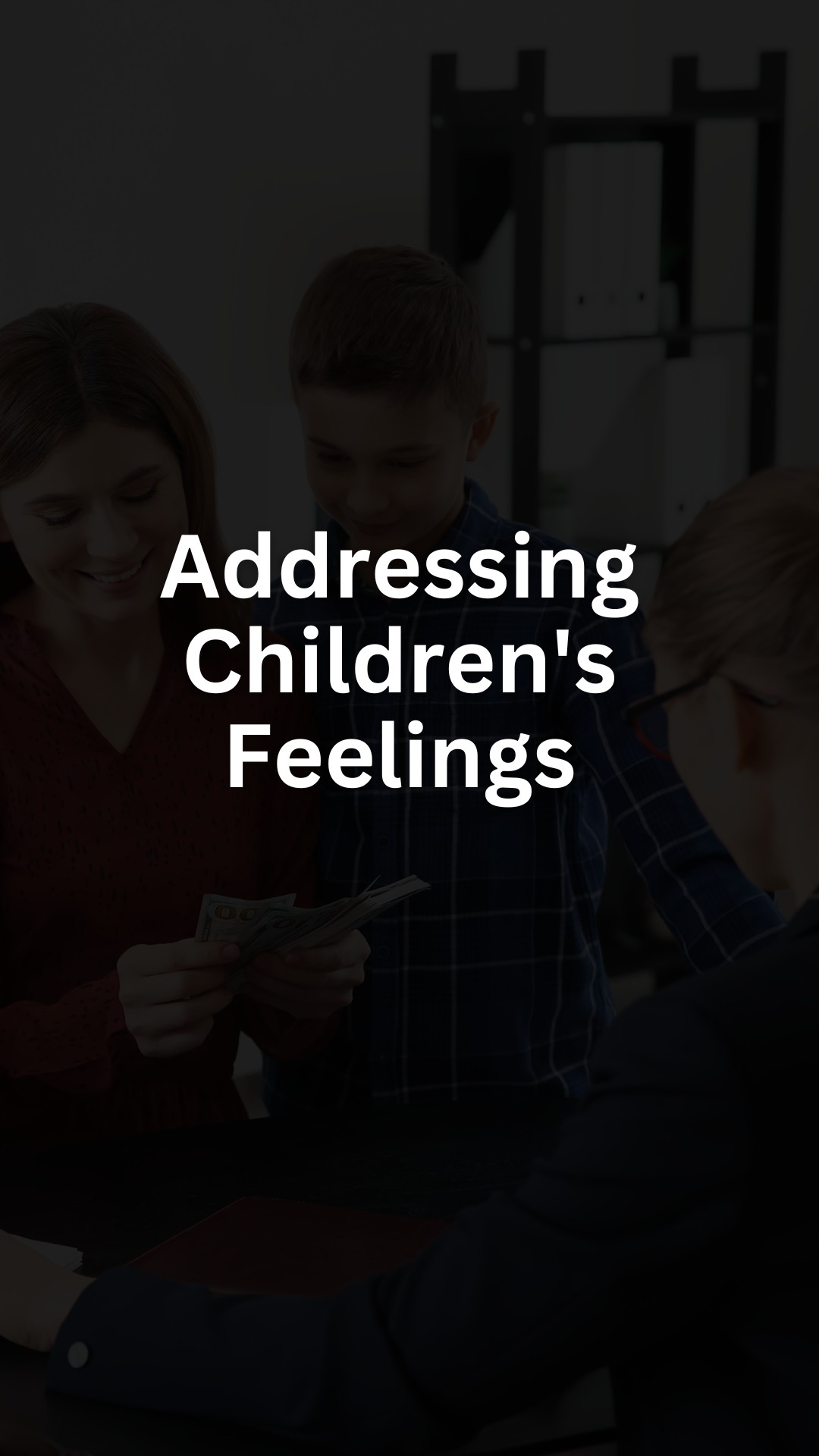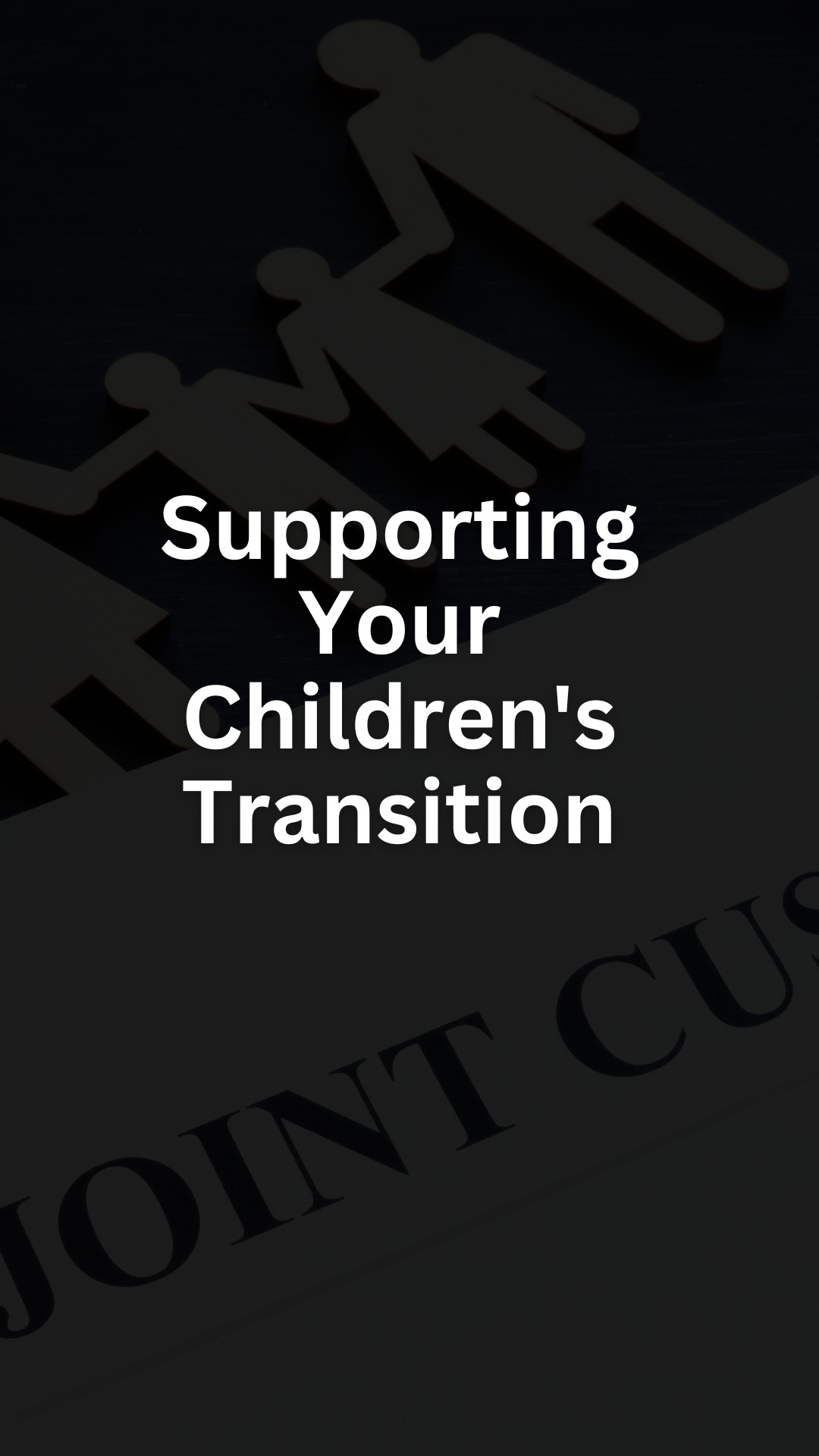Telling your children about divorce can be one of the hardest things you’ll ever do as a parent.
It’s important to be honest while also being gentle and reassuring.
Your kids need to know that both parents will continue to love and support them, no matter what changes may come.
When you talk to your children, choose a calm moment when you can give them your full attention.
Explain the situation in simple terms they can understand, avoiding unnecessary details.
Make sure they feel safe and encourage them to ask questions.
Reassure your kids that the divorce is not their fault.
Emphasize that both parents will still be very involved in their lives and that they are loved unconditionally.
This will help them feel more secure during this time of big changes.
Understanding Divorce

Divorce can be difficult for everyone involved, and knowing why it happens and how it affects people is important.
Defining Divorce
Divorce is the legal end of a marriage. When two people decide they can no longer stay married, they ask a court to officially end their relationship.
Divorce involves many steps, including splitting assets and determining custody for children.
It’s a serious decision that can change lives significantly.
Knowing what divorce is can help you understand its impacts better.
Common Causes of Divorce
There are many reasons why couples might decide to divorce. Common causes include:
- Communication Problems: Misunderstandings or lack of talking can create distance.
- Financial Issues: Money problems can cause stress and conflicts.
- Infidelity: Cheating can break trust and lead to separation.
- Differing Goals: Changes in personal goals or life plans can drive people apart.
Recognizing these causes can help you see that many factors influence the decision to divorce.
Psychological Impact on Parents
Divorce can be emotionally challenging for parents. They may experience feelings such as:
- Grief and Loss: The end of a marriage may feel like a loss.
- Stress: Managing new responsibilities and changes can be stressful.
- Guilt: Parents might feel guilty about the impact on their children.
These emotional effects are normal and understanding them can help in managing the changes that come with divorce.
Preparing for the Conversation

It’s important to prepare carefully when telling your children about divorce. Think about the right time, plan the discussion, and anticipate their reactions.
Choosing the Right Time
Pick a time when you and your children are calm and not rushed. Avoid busy or stressful times, like before school or bedtime.
A weekend or a quiet afternoon might work best.
Make sure both parents are present if possible, to show unity and support.
Timing can affect how children absorb the information. If they are tired or distracted, they may not fully understand what you’re saying.
Choose a moment when you can give them your full attention and answer their questions.
Planning Your Discussion
Plan what you will say ahead of time.
Decide on key points to cover and avoid blaming or arguing.
Keep your language simple and age-appropriate.
Be honest but reassuring.
Use “we” statements to show cooperation, like “We both love you very much and will always be here for you.”
Prepare for their questions.
They might ask why this is happening, where they will live, or if it’s their fault.
Have clear, comforting answers ready.
Practice the conversation if needed, to make sure you stay calm and focused.
Anticipating Reactions
Children might react in many ways. They could be sad, angry, confused, or quiet.
Prepare yourself for any reaction and give them space to express their feelings. Be patient and listen.
Offer comfort and understanding without pushing them to talk before they’re ready.
Let them know it’s okay to feel whatever they’re feeling.
Follow up later to check on their feelings and answer more questions.
Talking to Your Children

When discussing divorce with your children, it is important to use language they can understand, be truthful, and provide reassurance. This ensures they feel safe and supported during a challenging time.
Use Age-Appropriate Language
Children of different ages need different kinds of explanations.
Young children might only understand simple concepts, so use words they know. For instance, you could say, “Mom and Dad need to live in different houses because we argue too much.”
Older children can grasp more complex ideas. With them, you can explain more detail about what divorce means.
Phrases like, “Our relationship has changed, and living apart is better for us,” are more suited for teens. Keep the language clear and straightforward.
Avoid using legal terms or adult issues when talking to any child.
Focus on how it impacts them directly, like changes in living arrangements and daily routines.
Adjust the conversation to fit their maturity and emotional development.
Be Honest and Direct
Honesty helps build trust. Tell your children the truth about the divorce without overloading them with details.
For example, you can say, “We are getting a divorce because we have different goals now.”
Avoid blaming each other or speaking negatively about your partner.
Children appreciate direct answers. If they ask why, give a simple and true reason, such as, “We tried to make it work but couldn’t.”
It’s better to say, “I don’t know,” if you genuinely do not have an answer, rather than make something up.
Prepare for their questions and answer as best as you can.
Keep your explanations brief and to the point.
Be ready to talk more if they need it. Encouraging open communication will help them process the situation better.
Reassuring Your Children
Reassure your children that both parents still love them.
Make it clear that they are not to blame for the divorce.
Phrases like, “This is not your fault,” and, “Both of us love you very much,” are important.
Let them know what will stay the same.
Continuity, like seeing both parents and keeping routines, can be comforting.
Emphasize the things that won’t change, like school or activities they enjoy.
Spend extra time with them and listen to their feelings. Show empathy and understanding.
Reassurance can go a long way in helping children cope with the changes during a divorce.
Addressing Children’s Feelings

When parents divorce, children experience a mix of powerful emotions. It’s crucial to recognize and honor these feelings while ensuring they feel supported and heard.
Recognizing Emotional Responses
Children’s reactions to divorce can vary widely. Some might feel sad or angry, while others may feel confused or even guilty.
Pay attention to changes in behavior, such as becoming withdrawn, having trouble in school, or acting out.
Take note if they start crying more often or seem unusually quiet.
Even younger children, who might not fully understand the situation, can show their feelings through changes in play or sleep patterns.
Encouraging Open Communication
Make it clear that it’s okay for children to talk about their feelings.
Create an environment where they feel safe sharing their thoughts and emotions without fear of judgment or punishment.
Ask open-ended questions to help them express themselves. For example, “How are you feeling about all the changes at home?”
Listen actively and patiently, showing that their feelings are valid and important.
Providing Emotional Support
Apart from listening, providing consistent reassurance is key.
Let your children know they are loved and that both parents will continue to be there for them, even if the family dynamic is changing.
Consider seeking the help of a therapist or counselor if your child is struggling to cope.
It can also be helpful to read books about families going through similar situations to show them they are not alone.
Discussing Living Arrangements

When talking to your children about divorce, it’s crucial to explain who they will live with and how things will change in their daily life. This ensures they feel secure and understand the new situation.
Explaining New Living Situations
Clearly explain where each parent will live.
Show your child where their new rooms will be if they are changing homes. Use drawings, photos, or visits to help them visualize.
Address any questions they have and reassure them that both parents love them very much.
Be honest about the reasons for two homes without going into unnecessary details.
Let them know this change is to ensure everyone’s happiness and well-being.
Keep the conversation open and comforting, allowing them to express their feelings.
Maintaining Stability and Routines
Maintaining familiar routines helps children adjust more easily.
Keep bedtime, meal times, and homework schedules consistent, even between two homes.
This familiarity offers comfort and helps them feel more in control of their environment.
Communicate with your co-parent to ensure consistent rules and expectations at both homes.
This helps children feel more secure and reduces confusion.
Create a shared calendar for important events and activities to stay organized and keep children informed about their schedules.
Co-Parenting Strategies

Working together and keeping rules steady between both households helps create a stable environment for your children after divorce.
Fostering a Collaborative Approach
Teamwork with your ex-spouse is key to successful co-parenting.
Start by communicating openly about your children’s needs.
Use phone calls, texts, or emails to keep each other updated.
Regular discussions about school activities, health, and significant events are crucial.
Meet to discuss major decisions about schooling or health.
It’s okay to disagree, but finding compromises is essential.
Respect each other’s parenting style even if they differ from yours.
A shared calendar can help avoid conflicts about schedules and routines.
Remember, your children’s well-being should be the main focus.
Setting Consistent Rules
Setting similar rules in both homes provides consistency for your children.
Agree on bedtimes, homework routines, and screen time limits.
This prevents confusion and keeps expectations clear.
When rules are consistent, children know exactly what is expected of them.
Have a list of core rules that both homes follow.
Discuss these rules with your children to make sure they understand.
When both parents stick to the same rules, it helps children adapt better to the changes following a divorce.
Consistent rules can reduce stress and provide a sense of security.
Legal and Financial Considerations

When talking to your children about divorce, it’s important to be clear about both legal and financial changes. These can affect their daily lives and future security.
Explaining Custody Concepts
Custody is about where your children will live and who makes important decisions for them.
You might share custody, meaning your children spend time with both parents. Or, one parent may have primary custody while the other has visitation rights.
Explain the arrangement clearly.
Use simple terms like:
- Primary Custody: Where the children live most of the time.
- Joint Custody: Splitting time between both parents.
Also, discuss what will stay the same.
Reassuring your children about their routine, school, and activities can help them feel secure.
Discussing Financial Changes
Divorce often changes the family’s finances.
Be honest with your children about what this means.
They might have to adjust to a new budget or lifestyle.
Key points to cover:
- Child Support: One parent may need to contribute money regularly.
- Living Arrangements: Changes might include moving to a different house.
- Daily Expenses: Some activities or extras may become limited.
Using terms like budget and savings can help children understand and adapt.
Make sure they know it’s okay to ask questions. This helps them feel involved and less anxious about future changes.
Supporting Your Children’s Transition

Helping your children navigate the changes during and after a divorce is essential. This involves maintaining strong parental involvement and carefully watching how they adjust over time.
Continued Parental Involvement
Keep both parents involved in your children’s lives. Regular communication between parents helps keep schedules and expectations clear. Make sure both parents attend important events like school functions and birthdays.
Encourage open dialogue. Children should feel comfortable talking to both parents about their feelings.
Plan activities that include both fun and routine tasks, like helping with homework. This balance helps maintain a sense of stability.
Consistency is key. Stick to routines and agreements on rules and discipline. Children need to see that, despite the divorce, their parents can work together to support them.
Monitoring Adjustment Over Time
Pay attention to your children’s emotional and behavioral changes. Look for signs like withdrawal, trouble in school, or changes in eating habits. These can indicate struggles with the divorce.
Regular check-ins are helpful. Ask how they are feeling and listen carefully.
Seeking feedback from teachers or counselors can provide additional insights.
Encourage expression through activities like drawing, writing, or sports. These outlets can help children process their emotions.
If needed, don’t hesitate to get professional help, such as counseling, to support their adjustment.
Remember to be patient. Adjusting to divorce is a process and may take time. Keep showing love and support along the way.
Seeking External Support

Talking to a professional counselor can help you and your children cope with the changes.
A therapist offers a safe space to express feelings. They can guide you through the process.
Consider joining a support group. Connecting with others in similar situations can be comforting.
Teachers and school counselors are also valuable resources. They can provide additional support for your children.
Ways to Seek Support:
- Counseling
- Support groups
- School resources
Remember, reaching out for help is a sign of strength, not weakness.
Maintaining a Positive Outlook

When talking to your children about divorce, it’s important to stay positive. Children can sense your emotions, so try to stay calm and hopeful. This will help them feel more secure during the changes.
Focus on Love and Support
Remind your kids that both parents love them. Explain that even though things are changing, your love for them isn’t. Knowing they are loved is the most important thing for them.
Highlight the Benefits of Change
Discuss some changes that might be exciting. Maybe there will be two homes to visit, or new routines to enjoy. Focusing on positive aspects can help them adjust better.
Answer Questions Honestly
Kids will have questions. Answer them truthfully but in a way they can understand. Be patient and open. This builds trust and helps them feel more at ease.
| Tips for a Positive Outlook | Description |
|---|---|
| Stay calm | Kids take cues from your emotions. |
| Show love and support | Reassurance is key for their security. |
| Highlight positive changes | Make new routines sound exciting. |
| Answer their questions | Honesty helps build trust. |
Maintain Routine
Keeping some things the same can be very comforting. Try to keep regular bedtimes, meal times, and activities. This stability helps them feel safe.
Encourage Open Communication
Let your children know they can talk to you anytime. Encourage them to share their feelings. Sometimes just listening is the best support you can give.
Stay Positive Yourself
Your attitude affects your kids. Taking care of your own well-being helps you stay positive for them. Seek support if you need it.
Frequently Asked Questions

Deciding how and when to talk to your children about divorce can be very challenging. Knowing how to answer their questions and understanding their reactions can make this process smoother.
What is the most appropriate way to discuss divorce with young children?
Use simple and clear words. Explain that sometimes parents decide they can’t live together anymore. Make sure to tell them it’s not their fault and both parents still love them.
How can parents address their child’s questions regarding the reasons for divorce?
Be honest but keep it simple. You can say that sometimes adults have problems they can’t fix. Avoid blaming each other.
When is it considered the right time to inform your child about an impending divorce?
Tell your child when you have a plan in place. This includes where they will live, where they will go to school, and how often they will see each parent.
What are the most sensitive approaches to explaining divorce to a child without the cooperation of the other parent?
Focus on what you can control and keep your explanations about your actions and feelings. Avoid speaking negatively about the other parent.
How can age-specific reactions to divorce be understood and managed by parents?
Younger children might need more reassurance and stability. Older children may ask more detailed questions and need support to express their feelings. Adjust your approach based on their age.
What phrases or topics should be avoided when talking about divorce with children?
Avoid saying things that might make them feel guilty or responsible.
Refrain from using adult language about the other parent’s actions or the reasons for the divorce.